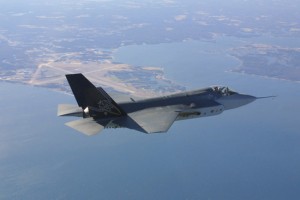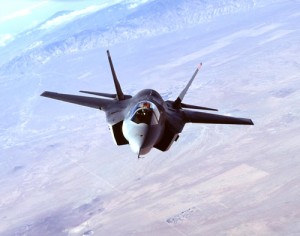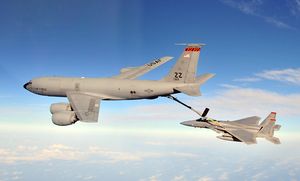From Politico’s Morning Defense, we learn about a military official who spoke about the following on condition of anonymity. One need not read very far to know why.
 In a briefing on new cost and schedule assessments for the F-35 Joint Strike Fighter (JSF), Defense Secretary Robert Gates learned that delivery could be delayed by one to three years and cost $5 billion more than estimated. Ouch.
In a briefing on new cost and schedule assessments for the F-35 Joint Strike Fighter (JSF), Defense Secretary Robert Gates learned that delivery could be delayed by one to three years and cost $5 billion more than estimated. Ouch.
Three versions of the F-35 are being built by Lockheed Martin for the Air Force, Navy and Marine Corps, as well as several foreign militaries. Conceptually, it’s not a bad idea for the services to “jointly” share a common platform with variations to serve the unique requirements of each. The problem is that our system of acquiring military equipment suffers from the same mentality that lured so many Americans into thinking they could afford multimillion-dollar homes on modest incomes. What happened to the simple concept of buying what you can afford rather than everything you want?
Gates intends to reduce defense spending, and he’s announced an initial goal of 10%. Earlier this year, he eliminated over $600 million in performance fees to Lockheed Martin for problems with the program. That sounds like a heavy penalty, except that the Pentagon’s latest cost estimate for the aircraft is $112.4 million per plane, an 81% increase over the baseline set in 2002. The higher costs and schedule delays are due to a major wing redesign, increased labor costs and supplier component delays.
 Any delays, of course, are cumulative. Problems meeting the delivery schedule impede the start of pilot training on the F-35 and affect when the military services declare their first JSF units operational. One government official blessed his audience with a bewildering statement of the obvious: “To the extent you can’t train the pilots, that’s going to further delay any kind of initial operational capability that you think you’re going to have.” Well, duh.
Any delays, of course, are cumulative. Problems meeting the delivery schedule impede the start of pilot training on the F-35 and affect when the military services declare their first JSF units operational. One government official blessed his audience with a bewildering statement of the obvious: “To the extent you can’t train the pilots, that’s going to further delay any kind of initial operational capability that you think you’re going to have.” Well, duh.
I’m kind of surprised, actually, that someone hasn’t suggested we just put a robot in the cockpit. The JSF has so much cutting edge technology anyway, who needs a living, breathing pilot?
The Lockheed Martin CEO said last month that the review was likely to find that the development program would “need more resources in software development and flight test.” The company recently issued a statement saying that it had cooperated with the Pentagon assessment, but that it would not comment further until the Defense Acquisition Board review is completed.
As I wait for the results of that bombshell, I have to wonder how many of us would be content to sign a contract with someone and pay 81% more than originally planned? For starters. Does anyone for a second think that’s the end of the overruns?
 Another example of a broken system sitting like a 500-pound gorilla on Gates’ desk comes to us from Shane Harris of the Washingtonian. It refers to the venerable Boeing KC-135 Stratotanker: “The American military is the strongest and most agile on the planet for one reason — this airplane. But replacing the 50-year-old refueling tanker has turned into a decade-long saga, one that has cost a CEO his job, sent two officials to jail, and wasted millions of dollars. This is the story of the tragedy of the tankers. By the end of the year, the Air Force hopes to bring to a close one of the most controversial affairs in Pentagon history — something it’s twice tried to do and failed.”
Another example of a broken system sitting like a 500-pound gorilla on Gates’ desk comes to us from Shane Harris of the Washingtonian. It refers to the venerable Boeing KC-135 Stratotanker: “The American military is the strongest and most agile on the planet for one reason — this airplane. But replacing the 50-year-old refueling tanker has turned into a decade-long saga, one that has cost a CEO his job, sent two officials to jail, and wasted millions of dollars. This is the story of the tragedy of the tankers. By the end of the year, the Air Force hopes to bring to a close one of the most controversial affairs in Pentagon history — something it’s twice tried to do and failed.”
These two examples are only the tip of the financial-disaster iceberg waiting to send America’s ship to the graveyard of history. Spending beyond our means begins in the lofty halls of power by setting unattainable goals, continues with a corrupt acquisition process absent effective oversight, and charges into the future like a runaway train no one has a prayer of getting under control.
No wonder we’re broke.


